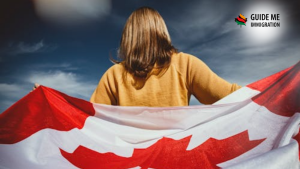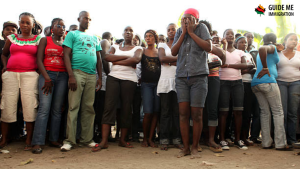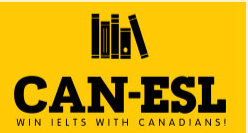Spousal Sponsorship in Canada: A Complete Guide
Canada offers a direct pathway for Canadian citizens and permanent residents (PRs) to sponsor their spouse, common-law partner, or conjugal partner for permanent residence (PR). This program allows families to reunite and build their lives together in Canada. Here’s everything you need to know about spousal sponsorship.
Eligibility to Sponsor
To be eligible to sponsor your spouse or partner for Canadian PR, you must:
- Be at least 18 years old.
- Be a Canadian citizen, permanent resident, or a person registered under the Canadian Indian Act.
- Reside in Canada (or demonstrate intent to return if living abroad as a Canadian citizen).
- Be financially capable of providing basic needs for your spouse or partner.
- Not be receiving social assistance (except for disability reasons).
If you are a permanent resident, you must be physically present in Canada while the application is being processed.
Disqualifications from Sponsorship
You may be barred from sponsoring if:
- You were sponsored as a spouse and became a PR less than five years ago.
- You are still financially responsible for a previous spouse or partner under a sponsorship agreement.
- You have declared bankruptcy and haven’t been discharged.
- You have failed to meet previous sponsorship financial obligations.
- You have defaulted on an immigration loan, performance bond, or family support payments.
- You have been convicted of a violent or sexual crime.
- You are under a removal order.
- You are currently incarcerated.
Who Can You Sponsor?
As a sponsor, you may apply to bring your:
- Spouse (legally married to you).
- Common-law partner (lived together for at least one year in a conjugal relationship).
- Conjugal partner (in a committed relationship for at least one year but unable to live together due to legal, cultural, or immigration barriers).
- Dependent children (under 22, unmarried, or older if financially dependent due to a disability).
Proof of Relationship
IRCC requires strong evidence to verify the legitimacy of your relationship. This may include:
- Marriage certificates (for spouses).
- Proof of shared residence (for common-law partners).
- Records of communication (messages, emails, call logs).
- Photographs of shared moments.
- Joint financial responsibilities (bank statements, lease agreements, utility bills).
Types of Spousal Sponsorship
Inland Sponsorship
- Your spouse or common-law partner must already be in Canada.
- They can apply for a Spousal Open Work Permit (SOWP) while their PR application is processed.
- They must maintain valid temporary resident status (visitor, worker, or student).
- The application process takes approximately 28 months.
- You cannot appeal if the application is refused.
Outland Sponsorship
- Your partner is living outside Canada.
- Conjugal partners must apply under this category.
- Your partner may still visit Canada during the application process if they have a valid visa.
- If refused, you have the right to appeal.
- Processing time is approximately 10 months.
Quebec-Specific Requirements
If you reside in Quebec, you must:
- Meet additional provincial sponsorship requirements.
- Apply through both IRCC and the Ministère de l’immigration, de la francisation et de l’intégration (MIFI).
- Sign an undertaking agreement with the province.
- Undergo an income assessment by MIFI.
- Be aware of a 13,000 cap on family sponsorship applications (effective June 26, 2024 – June 25, 2026).
- Expect longer processing times (34-36 months).
Financial Obligations & Sponsorship Undertaking
Sponsors must commit to financially supporting their spouse/partner for:
- 3 years from the day they become a PR.
- 10 years or until age 25 for dependent children under 22.
- 3 years for dependent children over 22.
If your sponsored partner/child receives government financial assistance, you must repay the full amount before sponsoring anyone else.
Application Process & Required Documents
Step 1: Gather Documentation
Both the sponsor and the sponsored individual must submit:
- Sponsorship forms and declarations.
- Proof of relationship (marriage certificate, photos, shared finances, communication records).
- Identity documents (passports, birth certificates, etc.).
- Medical exams and police certificates.
- Biometrics.
Step 2: Submit Application
- Inland applications must be sent to IRCC’s Case Processing Centre in Canada.
- Outland applications vary depending on the applicant’s country of residence.
Step 3: Application Processing & Decision
- IRCC reviews eligibility and relationship authenticity.
- Additional information may be requested (e.g., an interview).
- If approved, the sponsored partner receives a Confirmation of Permanent Residence (COPR).
Spousal Sponsorship Interview
Not all applications require an interview, but IRCC may schedule one if:
- There are inconsistencies in your application.
- The relationship appears questionable.
- The couple has a complex relationship history.
Common Interview Questions:
- How did you meet your partner?
- What do you know about each other’s families?
- How do you communicate?
- What are your future plans together?
- Describe daily life and shared responsibilities.
Application Fees
The cost to apply varies based on family composition. The basic fees include:
- Sponsorship fee: $85
- Principal applicant processing fee: $545
- Right of permanent residence fee: $575
- Biometrics: $85
- Total: $1,290
Additional fees:
- $170 per dependent child included in the application.
- Costs for medical exams, police certificates, and translations.
- Quebec residents pay an extra processing fee to MIFI.
Key Benefits of Spousal Sponsorship
- Allows families to reunite permanently in Canada.
- Inland applicants may qualify for a Spousal Open Work Permit.
- No minimum income requirement (except in Quebec).
- Sponsors are not financially responsible for their spouse’s past debts.
Challenges & Common Reasons for Refusal
Some common reasons for application rejection include:
- Insufficient proof of relationship.
- Ineligibility of sponsor (financial obligations, criminal history, etc.).
- Errors or missing information in the application.
- Past immigration violations.
- Misrepresentation or fraud.
If refused, Inland applications cannot be appealed, but Outland applications can go through the Immigration Appeal Division (IAD).
Why Choose Professional Assistance?
Given the complexity of sponsorship applications, hiring an immigration consultant can help:
- Ensure accurate and complete documentation.
- Strengthen your proof of relationship.
- Guide you through appeals if necessary.
- Minimize processing delays and risks of refusal.
Contact Us for Expert Immigration Guidance
If you need assistance with your spousal sponsorship application, reach out to us:
📍 Saskatoon: 535 20th St W, Unit-C, Saskatoon, SK S7M 0X6
📍 Regina: Unit 170 – 2410 Dewdney Ave, Regina, SK S4R 1H6
📍 Dhaka: Apt-2D, H-396, R-6 Avenue 3, Mirpur DOHS, Dhaka 1216
🌐 Website: www.guidemeimmigration.com
📞 Call: +1 (306) 700 7440
✉ Email: info@guidemeimmigration.com
Our experienced team is here to guide you through every step of the sponsorship process!
External Link:http://go-get.ca






